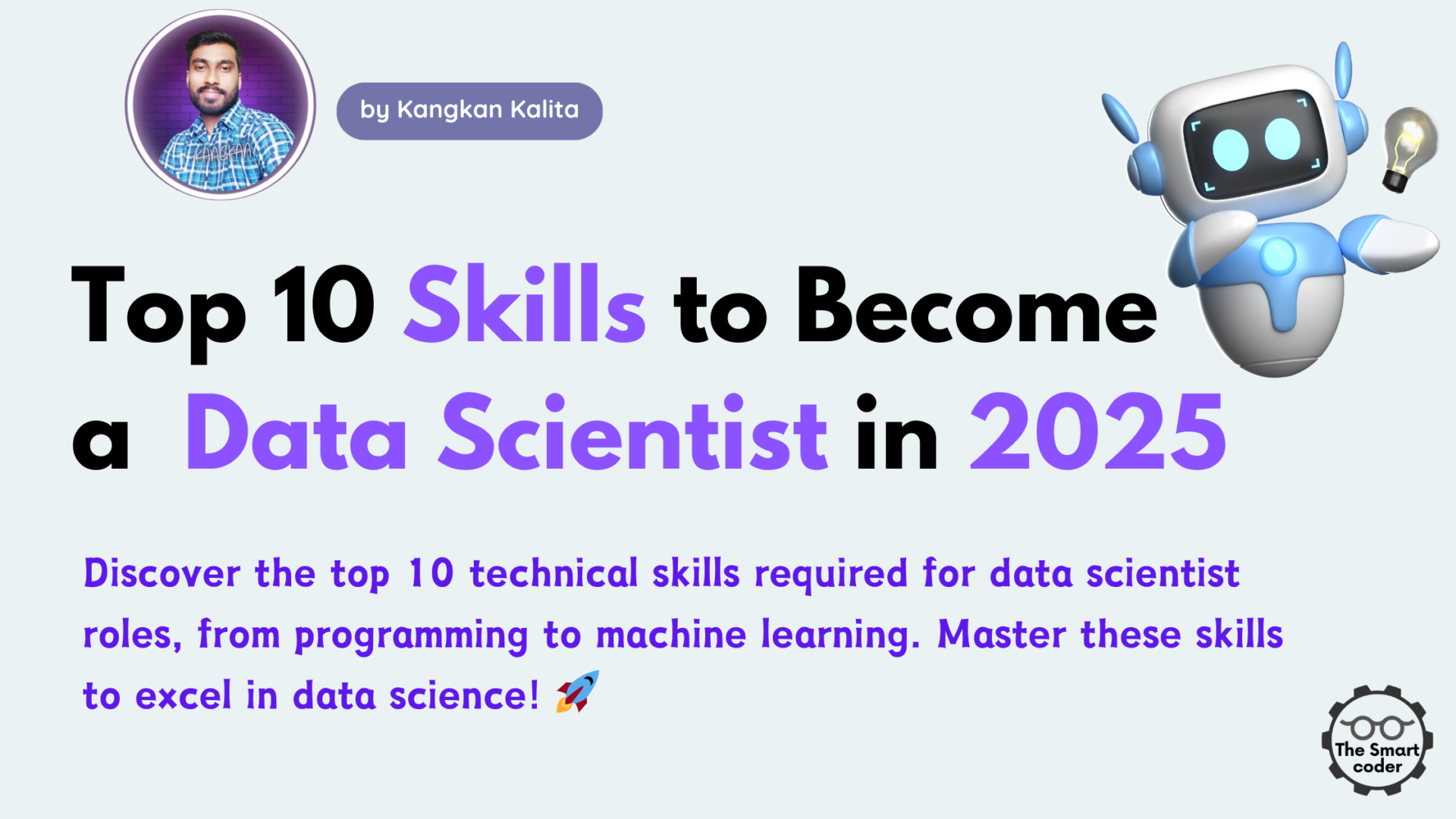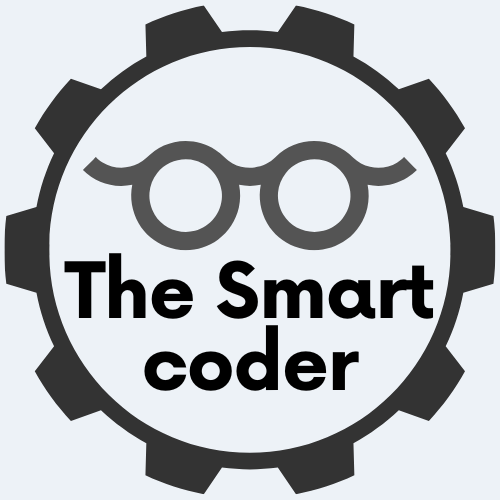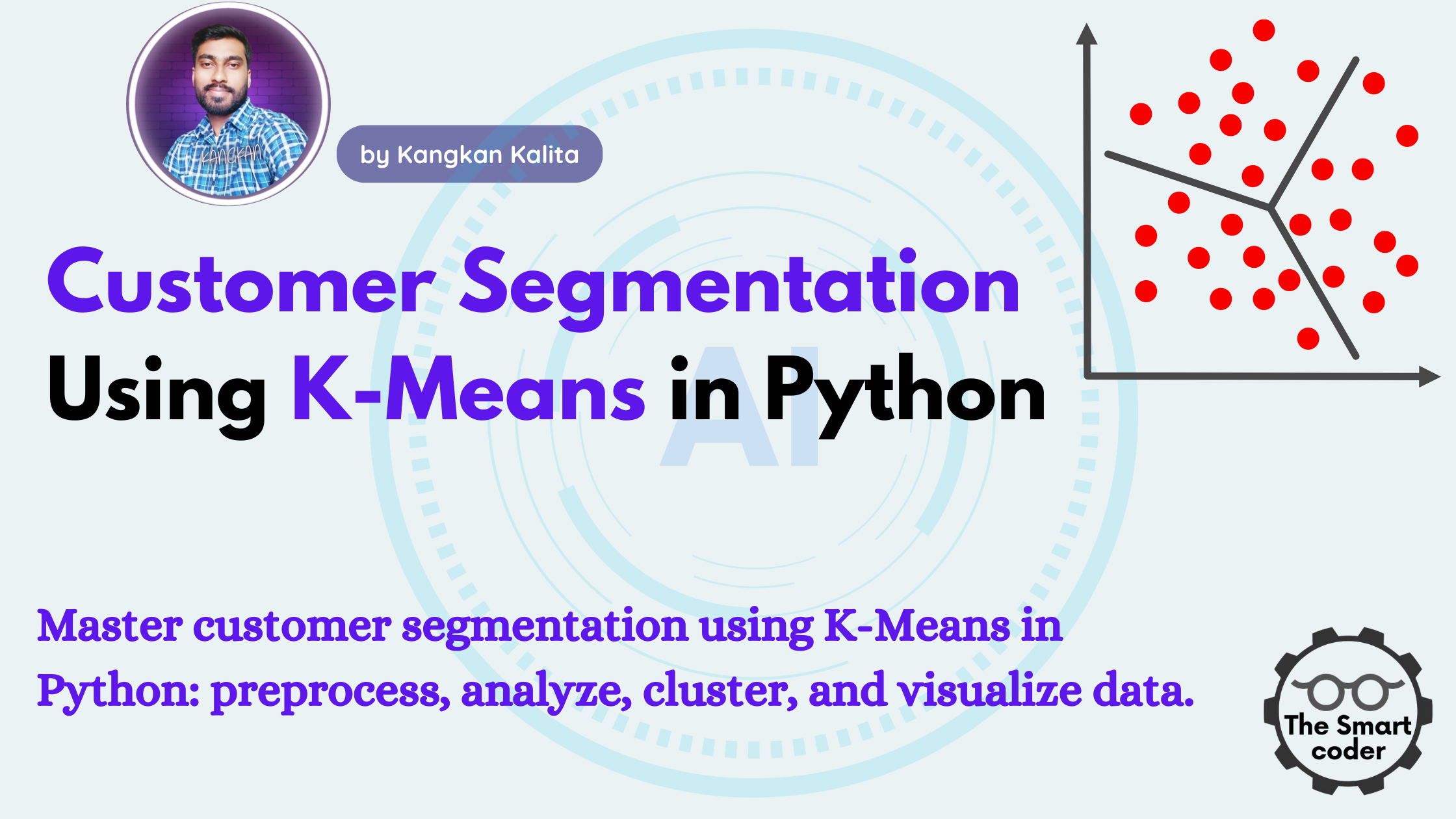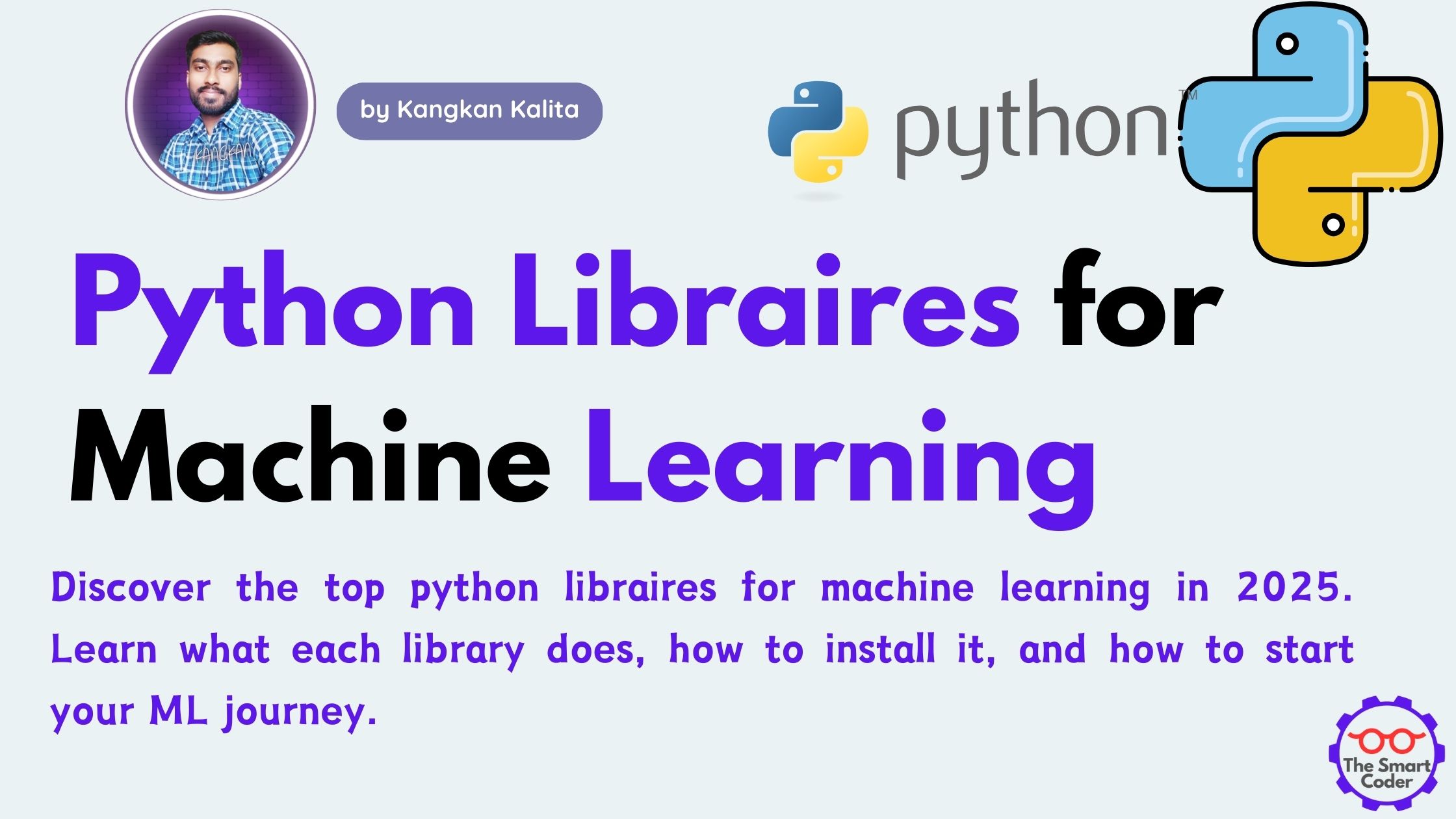10 Skills Every Data Scientist Should Have
The field of data science is booming, and businesses across industries are relying on data-driven insights to make smarter decisions. If you aspire to be a data scientist or want to enhance your expertise, understanding the essential skills required for this role is crucial.
In this blog, we will explore the 10 key skills every data scientist should have, with a special focus on the technical skills required for data scientist roles. Whether you’re just starting or looking to advance, mastering these skills will set you apart in this competitive field.

10 essential skills for a data scientist
To become a good Data Scientist, you need to master these skills:
1. Programming Skills
A data scientist needs strong programming skills to manipulate data, build models, and automate processes. The two most commonly used programming languages are:
- Python: Widely used due to its extensive libraries like Pandas, NumPy, Scikit-learn, and TensorFlow.
- R: Preferred for statistical computing and visualization.
Learning SQL is also essential for querying databases and extracting relevant data for analysis.
2. Statistics and Probability
Understanding statistics is fundamental to data science. Key statistical concepts include:
- Descriptive statistics (mean, median, standard deviation)
- Inferential statistics (hypothesis testing, confidence intervals)
- Probability theory (Bayes’ theorem, probability distributions)
These concepts help data scientists interpret data accurately and make informed decisions.
3. Data Wrangling and Cleaning
Raw data is often messy and inconsistent. Data scientists must know how to clean, transform, and prepare data for analysis. Important techniques include:
- Handling missing data
- Removing duplicates and outliers
- Normalizing and standardizing data
Tools like Pandas (Python) and dplyr (R) are commonly used for data wrangling.
4. Machine Learning and Deep Learning
Machine learning is at the core of data science. To build predictive models, data scientists must be familiar with:
- Supervised learning (linear regression, decision trees, random forests)
- Unsupervised learning (clustering, principal component analysis)
- Deep learning (neural networks, convolutional networks, recurrent networks)
Frameworks such as TensorFlow, Keras, and Scikit-learn are widely used for implementing machine learning models.
5. Data Visualization
Communicating insights effectively requires strong data visualization skills. Data scientists should be proficient in:
- Matplotlib and Seaborn (Python) for plotting graphs
- ggplot2 (R) for advanced visualizations
- Tableau and Power BI for interactive dashboards
Effective visualization helps stakeholders understand complex datasets with ease.
6. Big Data Technologies
With the rise of massive datasets, knowledge of big data technologies is essential. Data scientists should be familiar with:
- Hadoop: A framework for distributed storage and processing
- Spark: A fast, scalable analytics engine for big data
- NoSQL databases like MongoDB and Cassandra
These tools help process large volumes of data efficiently.
7. Cloud Computing
Modern data science projects often rely on cloud platforms for storage, computing, and deployment. Popular cloud services include:
- AWS (Amazon Web Services): S3, EC2, and SageMaker
- Google Cloud Platform (GCP): BigQuery and AutoML
- Microsoft Azure: Azure Machine Learning and Data Factory
Familiarity with these platforms enables data scientists to work with scalable solutions.
8. Business Acumen and Domain Knowledge
Technical expertise alone is not enough. A data scientist must understand the industry they work in to extract meaningful insights. Important aspects include:
- Understanding business goals and KPIs
- Identifying key data-driven strategies
- Communicating findings to non-technical stakeholders
A data scientist who understands their industry can provide more valuable insights.
9. Data Engineering Skills
While data scientists focus on analysis, having basic data engineering skills is beneficial. Key areas include:
- ETL (Extract, Transform, Load) processes
- Database management using SQL and NoSQL
- Pipeline automation using Apache Airflow
These skills help data scientists handle end-to-end data workflows more effectively.
10. Communication and Storytelling
Being able to explain complex data insights to a non-technical audience is a crucial skill. Strong communication involves:
- Creating compelling reports and presentations
- Writing clear and concise documentation
- Telling data-driven stories that influence decision-making
Good communication ensures that data insights are actionable and impactful.
Conclusion
Becoming a successful data scientist requires a mix of technical expertise and soft skills. From programming and machine learning to business acumen and storytelling, these technical skills required for data scientist roles will help you stand out in the competitive field of data science.
By continuously learning and improving, you can stay ahead of industry trends and make meaningful contributions through data-driven insights.
Which of these skills do you find most important? Let us know in the comments!
Latest Posts:
- SQL for beginners : A Complete Guide
- Predictive Analytics Techniques: A Beginner’s Guide to Turning Data into Future Insights
- Top 10 Data Analysis Techniques for Beginners [2025 Guide to Get Started Fast]
- How to Build a Powerful Data Scientist Portfolio as a Beginner [Step-by-Step 2025 Guide]
- Hypothesis Testing in Machine Learning Using Python: A Complete Beginner’s Guide [2025]






